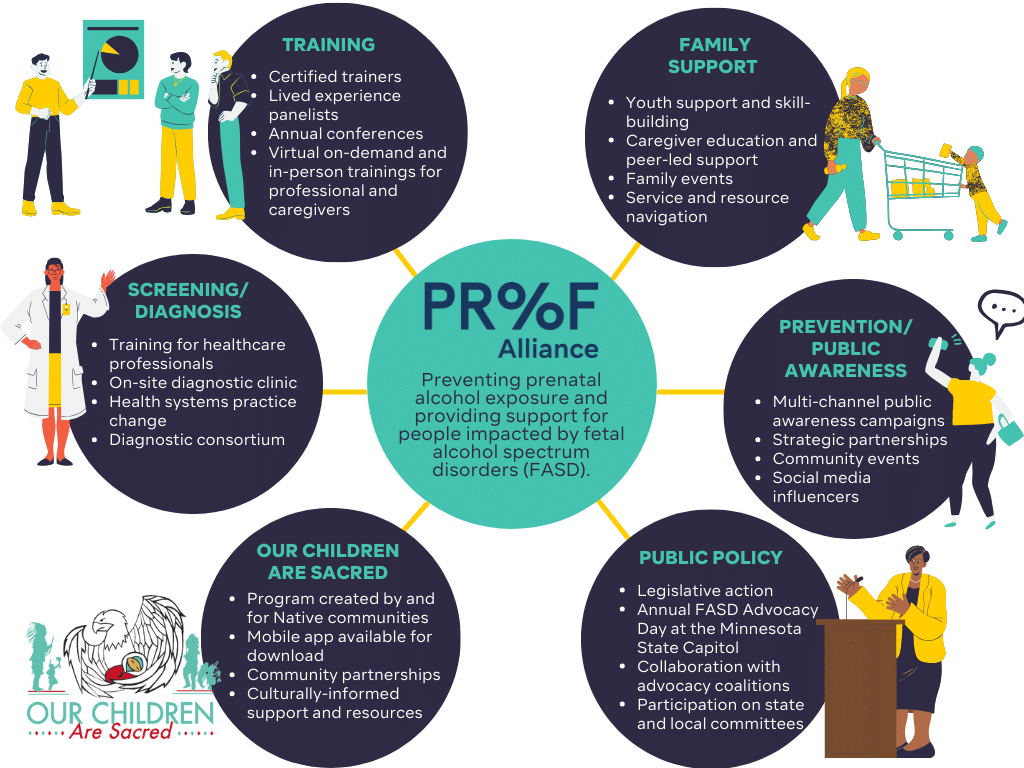Mission
To prevent prenatal alcohol exposure and support all impacted by fetal alcohol spectrum disorders.
Vision
A world in which alcohol is not consumed during pregnancy and people living with fetal alcohol spectrum disorders are identified, supported and valued.

"Proof Alliance gave me hope when I had none. They’ve been with me through every step, supporting my son and helping me understand his brain differences. Even as my children grow older, Proof Alliance continues to care."
— Caregiver

Our Impact
Proof Alliance is one of only a few nonprofit organizations solely focused on prenatal alcohol exposure and FASD in the United States. While we began in Minnesota, our reach now extends across the country through our training programs, family services and awareness campaigns. We’ve trained thousands of professionals, supported hundreds of families and touched millions of lives through education and advocacy.
To affect change more broadly, Proof Alliance works at a systems-level, including work within the justice system, education system, health care system and more. By equipping professionals within these systems to effectively prevent prenatal alcohol exposure and support those affected by an FASD, we can continue to grow our impact and overall effectiveness.
Investing in Proof Alliance’s mission not only creates a lasting human impact by supporting individuals and families affected by an FASD, but it also delivers an incredible return on investment. For every $1 spent on our programs, there’s an estimated social return of $55.70. Your support helps drive this meaningful change, ensuring healthier futures and stronger communities. Make an investment in Proof Alliance’s mission today, and together, we can continue making a profound difference.

"Proof Alliance has truly influenced my life, and I’m proud to be part of this community."
— Self-Advocate
Our Programs are the Heart of our Mission
Our programs are designed to address critical needs and foster greater awareness and inclusion. Whether it’s through prevention initiatives, supporting families, or training health care professionals to talk with pregnant patients about alcohol use, we aim to empower communities to thrive.

What can we help
you find today?
I want:
— or —
Get personalized help
Our FASD-informed Family Support Navigator team will connect you with the best navigator for your needs. We’ll reach out within one week to offer personalized, real-time help.





